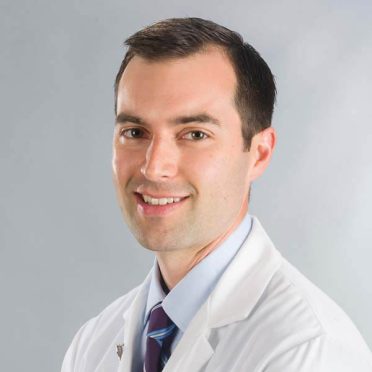By Laura Strom
Men are 1.4 times more likely than women to die from almost any chronic medical condition, according to national statistics reported by Hartford HealthCare. Yet men are 80 percent less likely than women to seek preventive healthcare. The very fact that men also live shorter lives means that male attitudes about prevention need to change.
Here are three treatable health conditions that men frequently tend to ignore. Taking note of these symptoms, discussing concerns with your doctor and following through with treatment can lead to better self-esteem, confidence and a much more comfortable and satisfying life.
Erectile Dysfunction
Erectile dysfunction (ED), the difficulty or inability to achieve and maintain an erection can affect men of any age, with 52 percent of men ages 40-70 experiencing some degree of ED. Medical conditions such as atherosclerosis, diabetes and obesity can contribute to ED. Surgery, medications or psychological issues can be factors as well. Nevertheless, ED is treatable.
The first and perhaps the most difficult step for some men is to confide in their primary care physician, who may send them to a specialist. A board-licensed urologist will explain all possible options and FDA-approved treatments available.
Hartford HealthCare’s Tallwood Men’s Health has an on-site behavioral expert who can help with any underlying emotional problems such as performance anxiety, depression, loss of interest and low self-esteem.
Many men don’t realize that there are ED treatments, including a penile implant. The surgery is about a 90-minute procedure, often outpatient or a one-night stay. The implant looks natural and creates an erection whenever desired.
Doug J., 74, of New London County, had the implant procedure in November 2017 and never looked back. He had recovered from cancer surgery that removed his prostate but unfortunately caused ED. Even after he was deemed cancer-free, he still wasn’t completely happy because of ED.
Doug’s oncologist referred him to Dr. Jared Bieniek, a board-certified urologist and Tallwood Men’s Health medical director. Though Doug chose first to try less invasive treatments, such as medication and injections, those were unsuccessful or uncomfortable. When Dr. Bieniek advised Doug he was a candidate for an implant, Doug at first was reluctant.
“I was scared to death,” Doug recalls. “But Dr. Bieniek made me comfortable. After it was all over, I was fine. I had discomfort, but I can’t remember pain.”
The implant surgery involved inserting two chambers in the penis, a saline-filled reservoir behind the abdominal muscles, and a pump in the scrotum. By manually activating this pump, an erection occurs on demand.
“For something that you thought you would never have again, and there it was,” he says. “It doesn’t feel fake at all. It feels like you’re a 20-year-old guy again. I would recommend it to anybody.”
Reflecting on his experience, Doug offers advice to any man with ED: “Go talk to your doctor about it. Make sure you get the best doctor possible. I was lucky. I got an amazing doctor. Don’t be afraid to do it.”
Dr. Bieniek and the Tallwood team of specialists perform implants weekly, making it a high volume center. After the procedure, he says patients respond with “a sigh of relief to have that part of their lives back.” He estimates a “95-percent-plus” satisfaction rate, and partner satisfaction rates are equally as high.
Tallwood also treats other common male sexual health issues such as premature ejaculation and penile curvature as well as addressing mental health issues connected to these concerns.
Enlarged Prostate
An enlarged prostate is a benign growth in the gland that sits below the bladder and surrounds the urethra. Typically men with this condition will urinate several times throughout the day and wake up more than twice every night.
Benign prostatic hyperplasia (BPH) is a condition where the prostate increases in size but is not cancerous. According to the National Institute of Diabetes and Digestive and Kidney Diseases, BPH is the most common prostate problem for men over age 50. It affects 50 percent of men ages 51-60 and 90 percent of men over 80. Ignoring the problem can cause damage and complications in the kidneys or bladder, says Dr. Bieniek. However, the good news is that an enlarged prostate is treatable.
Symptoms of BPH vary and may include more frequent urination, urgency, trouble emptying the bladder, standing at the urinal longer than other men, getting up at night more than twice per night, blood in the urine, weak stream or a stream that stops and starts. Once your doctor rules out a bladder infection or other causes, a treatment plan is devised which can range from lifestyle changes to surgery.
A prostate can easily grow from walnut size to grapefruit size. Though diet, medication and other nonsurgical treatments can help some men, “It’s important to remember that they don’t address the problem. It’s kind of like a Band-Aid,” says Dr. Bieniek. More and more he is recommending a surgical procedure, such as removing excess tissue in the prostate to reverse a man’s urinary symptoms.
Dr. Bieniek says the first step is to tell your physician about your symptoms and have regular prostate exams after age 40 or 50, depending on risk factors. A blood test can detect the level of PSA (prostate-specific antigen), a protein released by the gland, to rule out prostate cancer.
Obesity
Obesity is more than excess weight. “It can affect the entire body,” Dr. Bieniek says. “It can be a progressive state that can get worse over time.” Unfortunately, he adds, once some of the effects on the body develop, they may not be reversible. Obesity has far-reaching negative effects on the body, including elevated cholesterol, high blood pressure, heart disease, joint problems, sleep apnea, decreased testosterone levels and sexual drive, psychosocial effects, and increased risk for Type 2 diabetes and cancer.
“Men are a little more defensive about body image, and there is more acceptance in society for men to be a little overweight or ‘big boned,’” Dr. Bieniek says.
Your physician is your best guide on how to safely lose weight and build strength. Your better health is within reach, whether it’s as simple as a referral to a registered dietitian or as involved as bariatric surgery. But you have to take the first step by asking for and accepting help.
To learn more, contact Hartford Healthcare’s Tallwood Men’s Health by clicking here.
To request an appointment with a Tallwood Men’s Health Specialist, click here.


